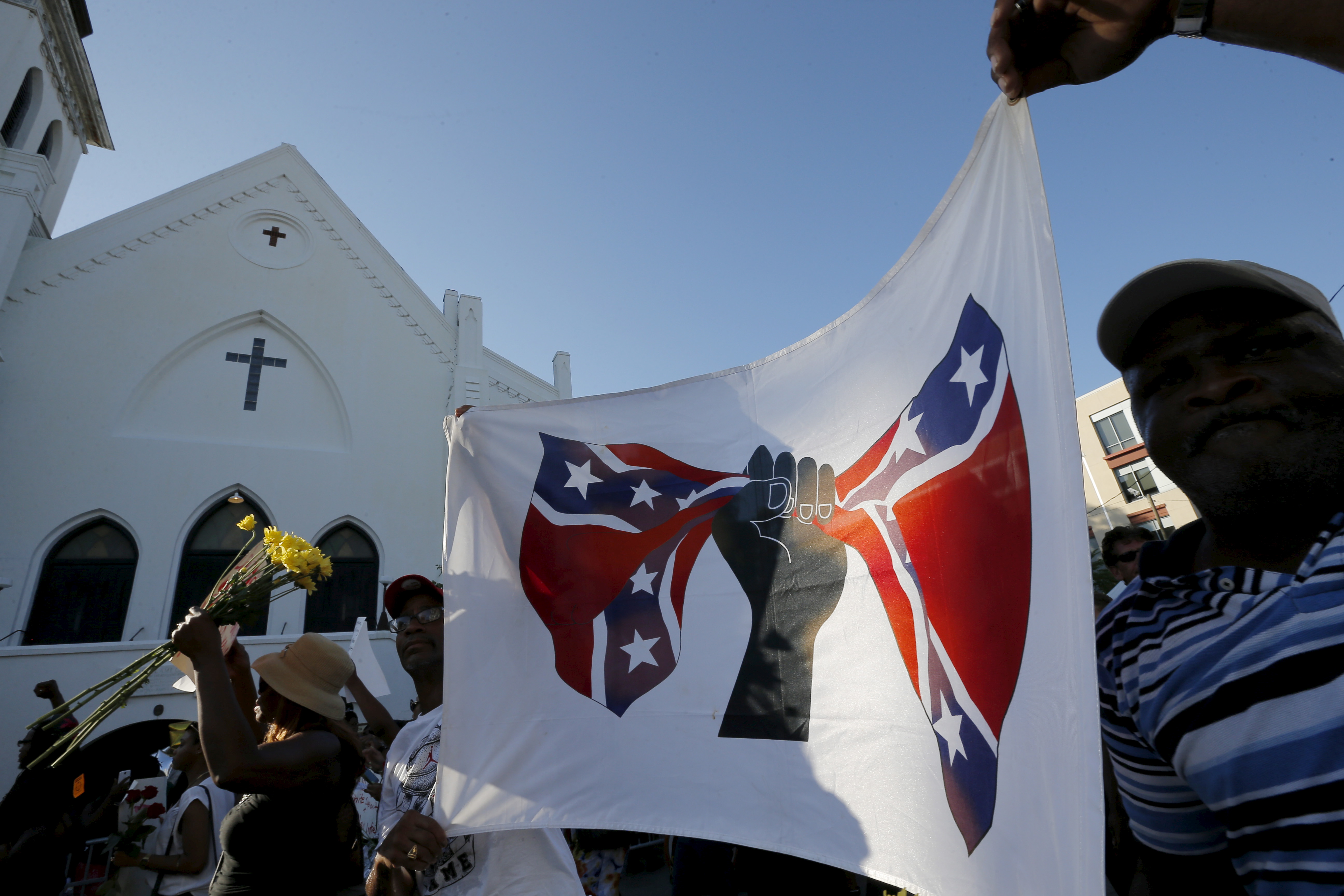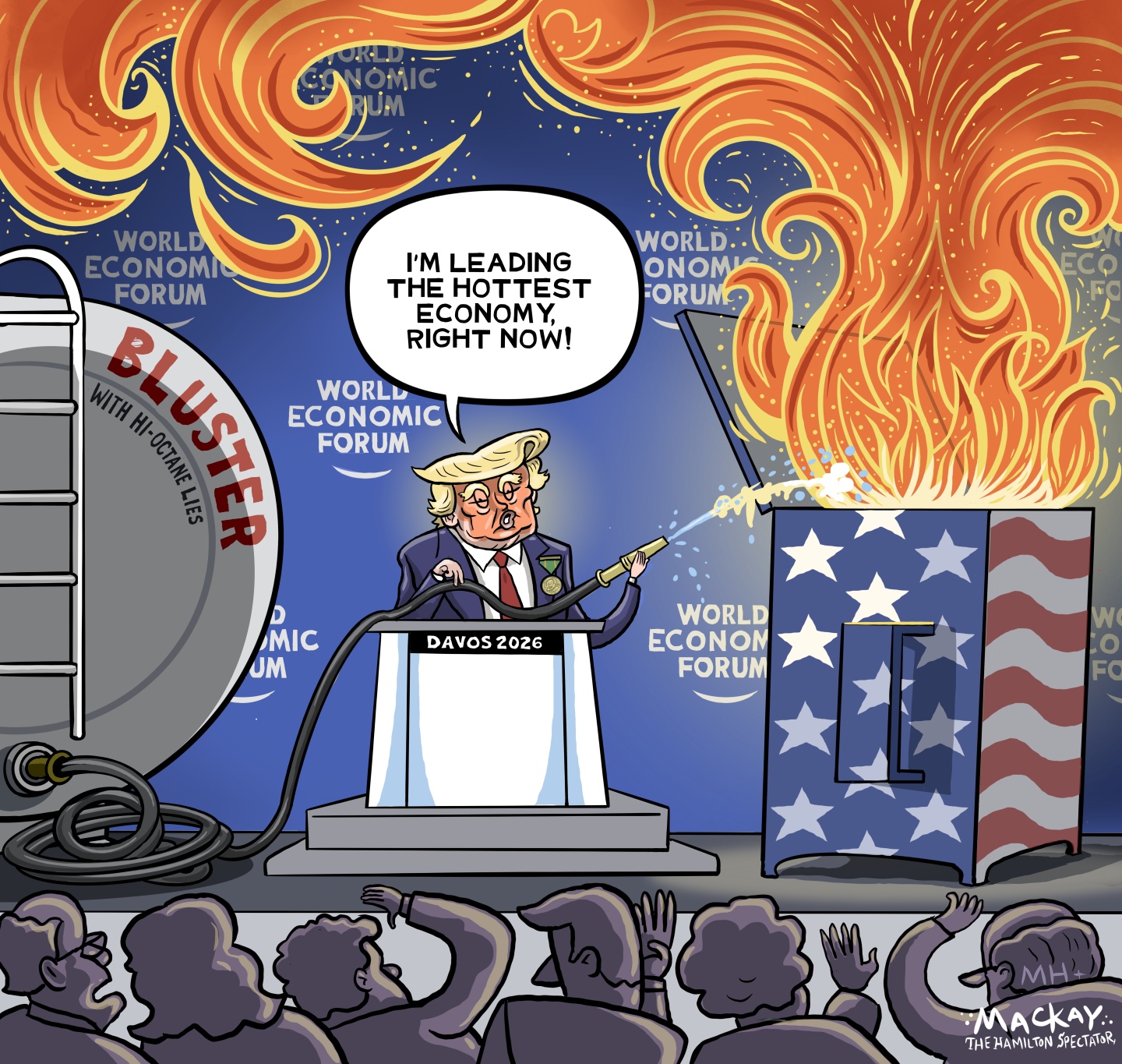Marc Maron, Obama, and what conservatives don't understand about the N-word
It's not about what any individual says. It's about institutional racism.


During a wide-ranging interview with Marc Maron on his WTF podcast, President Obama frankly discussed his upbringing, presidential style, America's political institutions, gun control, race, and much more. The media, however, zeroed in on a tiny little snippet of the interview, in which Obama let slip the dreaded N-word.
There was an instant media frenzy to see who could win the traffic sweepstakes (including The Week, to be fair). Many conservatives also exploded in outrage — in a way that, in the days after the Charleston shooting, only further illustrates their continuing weakness on racial issues. Until they can grasp the social and institutional character of racism, they will continue to flail in the debate about race.
Let's print exactly what Obama said:
The Week
Escape your echo chamber. Get the facts behind the news, plus analysis from multiple perspectives.

Sign up for The Week's Free Newsletters
From our morning news briefing to a weekly Good News Newsletter, get the best of The Week delivered directly to your inbox.
From our morning news briefing to a weekly Good News Newsletter, get the best of The Week delivered directly to your inbox.
The legacy of slavery, Jim Crow, discrimination in almost every institution of our lives, you know, that casts a long shadow, and that's still part of our DNA that's passed on. We're not cured of it, and it's not just a matter of it not being polite to say "nigger" in public. That's not the measure of whether racism still exists or not. [WTF]
The first thing that should be distinguished here is that Obama was not using the word in reference to a person, but was merely mentioning it as an example of overt discrimination. The meaning of the above paragraph would not change in the slightest degree if he had substituted a euphemism.
Furthermore, as Ta-Nehisi Coates has pointed out many times, all words without exception exist in context, and black Americans, as the victims of racial slurs, have the right to appropriate those slurs in their own defense.
The screeching reaction from Fox News' Todd Starnes and Deneen Borelli suggests a view of racism that is akin to a magical incantation. If people choose to utter the incorrect syllables, then culture is besmirched and the goals of racism are advanced. This reflects a common conservative view of racism as a sin of individuals, revealed and reinforced by the use of language.
The truth is exactly the opposite: Racial slurs take their power from the underlying reality of institutional white supremacy. A white person using the N-word would carry hardly any weight if there had been no kidnapping or Middle Passage, no centuries of slavery or "whipping machine," no Civil War, no KKK or Red Shirts, no overthrow of Reconstruction, no Jim Crow or white terrorism, no segregation, no redlining or blockbusting, no racist police forces, no mass incarceration.
A free daily email with the biggest news stories of the day – and the best features from TheWeek.com
As Charles Mills emphasizes in his short, brilliant book The Racial Contract, white supremacy is a system that operates without much concern for the attitudes of the individual. It is both rooted in and creates bigoted attitudes among the broad white population, and any single person's beliefs are basically irrelevant.
This means that purging the use of the N-word from all American discourse (aside from being a baldly racist double standard) would not accomplish anything whatsoever towards the cause of racial justice or harmony. Indeed, as Dara Lind points out, the savvier racists had stopped using the N-word by about the 1940s, recognizing it as politically counterproductive and gauche.
That boring, obvious, uncontroversial argument, sharpened slightly by the utterance of a loaded word, is all Obama was saying. In fact, if anything he was far too blithe in his view of racial progress over the past several decades. Just before the remarks that set off so much controversy, he insisted, "It is incontrovertible that race relations have improved significantly during my lifetime and yours, and that opportunities have opened up, and that attitudes have changed. That is a fact."
It's probably true that people are more tolerant today. But on a whole slew of social indicators, the gap between black and white has not improved in 35 years. Since 1980, the income gap has become worse. The wealth gap is worse. Segregation has increased. Mass incarceration, particularly of young black men, is dramatically worse.
In other words, white supremacy continues to operate on autopilot. Without concerted policy action to tackle it, the disparities of the past will be passed along to the future — through inheritance, the scars of poverty, and unconscious learned bias. Conservatives like Chief Justice John Roberts, who thinks that the way to deal with racism is to abolish affirmative action, are keeping that system going.
Ryan Cooper is a national correspondent at TheWeek.com. His work has appeared in the Washington Monthly, The New Republic, and the Washington Post.
-
 Political cartoons for January 25
Political cartoons for January 25Cartoons Sunday's political cartoons include a hot economy, A.I. wisdom, and more
-
 Le Pen back in the dock: the trial that’s shaking France
Le Pen back in the dock: the trial that’s shaking FranceIn the Spotlight Appealing her four-year conviction for embezzlement, the Rassemblement National leader faces an uncertain political future, whatever the result
-
 The doctors’ strikes
The doctors’ strikesThe Explainer Resident doctors working for NHS England are currently voting on whether to go out on strike again this year
-
 The billionaires’ wealth tax: a catastrophe for California?
The billionaires’ wealth tax: a catastrophe for California?Talking Point Peter Thiel and Larry Page preparing to change state residency
-
 Bari Weiss’ ‘60 Minutes’ scandal is about more than one report
Bari Weiss’ ‘60 Minutes’ scandal is about more than one reportIN THE SPOTLIGHT By blocking an approved segment on a controversial prison holding US deportees in El Salvador, the editor-in-chief of CBS News has become the main story
-
 Has Zohran Mamdani shown the Democrats how to win again?
Has Zohran Mamdani shown the Democrats how to win again?Today’s Big Question New York City mayoral election touted as victory for left-wing populists but moderate centrist wins elsewhere present more complex path for Democratic Party
-
 Millions turn out for anti-Trump ‘No Kings’ rallies
Millions turn out for anti-Trump ‘No Kings’ ralliesSpeed Read An estimated 7 million people participated, 2 million more than at the first ‘No Kings’ protest in June
-
 Ghislaine Maxwell: angling for a Trump pardon
Ghislaine Maxwell: angling for a Trump pardonTalking Point Convicted sex trafficker's testimony could shed new light on president's links to Jeffrey Epstein
-
 The last words and final moments of 40 presidents
The last words and final moments of 40 presidentsThe Explainer Some are eloquent quotes worthy of the holders of the highest office in the nation, and others... aren't
-
 The JFK files: the truth at last?
The JFK files: the truth at last?In The Spotlight More than 64,000 previously classified documents relating the 1963 assassination of John F. Kennedy have been released by the Trump administration
-
 'Seriously, not literally': how should the world take Donald Trump?
'Seriously, not literally': how should the world take Donald Trump?Today's big question White House rhetoric and reality look likely to become increasingly blurred
